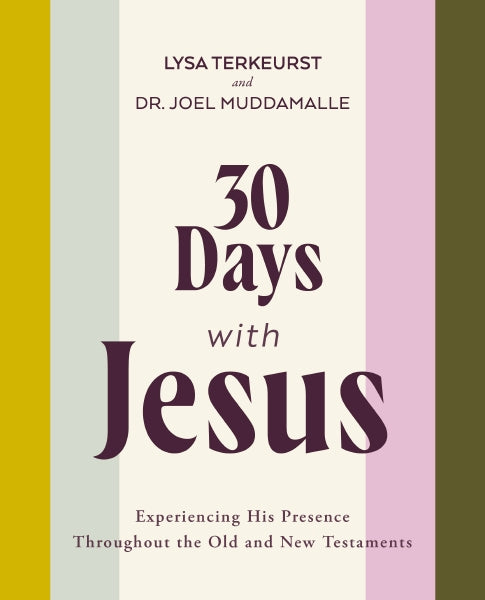EXODUS 14 / MARK 4:35–41
And He awoke and rebuked the wind and said to the sea, "Peace! Be still!" And the wind ceased, and there was a great calm. He said to them, "Why are you so afraid? Have you still no faith?" — Mark 4:39–40
Trust is delicate. It's hard to earn and easy to lose. Trusting someone else takes time. Especially when it comes to our own protection. We were designed with a high level of awareness around our need for self-protection, and at the slightest threat, we fight, fly, or freeze.
If someone breaks our trust, we naturally become guarded. When someone proves they are trustworthy, our confidence in them grows and we feel safe enough to let our guard down. Why? Because there is a consistent pattern of faithfulness demonstrated.
- This is the kind of trust Moses developed with God. He could trace God's past faithful protection over and over.
Moses had seen God help him do what seemed impossible: leading the Israelites out of captivity in Egypt. Just when there seemed to be no way Pharaoh would ever heed Moses' demand to let the people go, God demonstrated His unexplainable protection by using His power over nature to get Pharaoh's attention. God unleashed 10 plagues over Egypt, which eventually convinced Pharaoh to let the Israelites go.
Then God demonstrated His unexplainable protection again when He led the people in a less direct path to the promised land:
But God led the people around by the way of the wilderness toward the Red Sea. — Exodus 13:18a
Exodus 14:4 reveals God's plan to yet again show His people His ability to protect them: "
And I will harden Pharaoh's heart, and he will pursue them, and I will get glory over Pharaoh and all his host, and the Egyptians shall know that I am the Lord.' And they did so.
Just as God planned, with the Egyptians marching after them, the Israelites found themselves facing an angry sea in front of them and an angry enemy behind them. The only way for them to be saved would be for God to do something that could never have even been dreamed up with the human mind... Again it was God's unexplainable protection.
Israel's Path and God's Protection
- God unleashes 10 plagues over Egypt — Exodus 5:1-11
- Pharoah lets Israelites go — Exodus 12:31-42
- Israelites on wandering path — Exodus 13:17-22
- Pharoah/ Egyptians coming after Israelites — Exodus 14:5
- Parting of the Red Sea — Exodus 14:19-31
Read Exodus 14:10–12.
01 What does the people's response to Moses show about their mental and emotional state?
Notice a common thread in the reaction of the Israelites as we've been studying together? Let's also not forget there was more going on. The Israelites were not left alone or unprotected.
Read Exodus 14:13–14.
02 We don't have a record of the people's response after hearing Moses' direction. What would your response have been?
The initial response after crying out to God to fight on their behalf was silence. The Israelites surely thought Moses' advice made no sense. However, Moses was leading the people to use silence as a spiritual discipline. Moses told the people to sit silent and watch God protect them and fight on their behalf. If we were the Israelites, we would have probably demanded an explanation for what seemed like such an odd response to such a serious threat.
As we consider our own use of silence in the midst of threats, there can be many benefits. One purpose of silence may be to focus on the simplicity of God's power over all things. Another benefit might be to quiet distractions and interruptions that tempt us to explain away God's protection in our lives.
Maybe silence and solitude are ways for us to process and find peace with things that seem so unexplainable in our lives.
What would happen if we practiced the spiritual discipline of silence today by spending focused time meditating on the protection and provision of God in our lives? What if we intentionally remembered to trace God's faithfulness in the past until it helped us feel more safe and secure in the faithful and secure hands of God? The Israelites were aware of this truth through tangible and visible examples but, in that moment, needed to pause and remember.
Read Exodus 14:19–20.










No comments:
Post a Comment